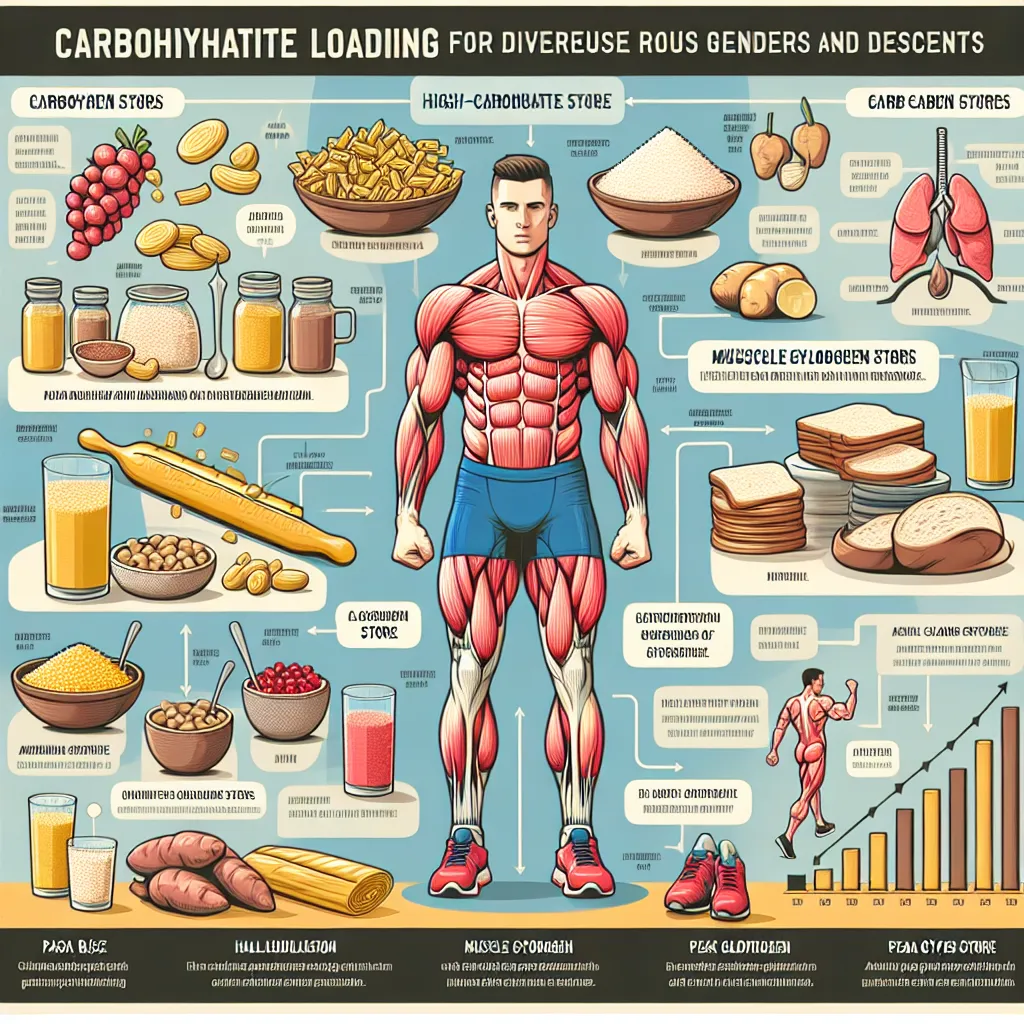“Carb-loading” is a crucial term in the world of sports nutrition and endurance training. Let’s break it down:
- Definition: Carb-loading, short for carbohydrate loading, is a strategy used by athletes to maximize the storage of glycogen (energy) in their muscles before a high-endurance event.
- Part of speech: Noun (can also be used as a verb: to carb-load)
- Pronunciation: /kɑːb ˈləʊdɪŋ/
As an IELTS candidate, understanding specialized vocabulary like “carb-loading” can significantly enhance your performance in the Reading and Writing sections, especially when dealing with sports or nutrition-related topics.

Context and Usage of “Carb-loading”
Examples in Context
-
“Carb-loading is a common practice among marathon runners to ensure they have enough energy for the race.”
- Analysis: This sentence introduces the concept and its primary users, highlighting its importance in endurance sports.
-
“The triathlete began her carb-loading regime three days before the Ironman competition.”
- Analysis: This example demonstrates the timing aspect of carb-loading, showing it’s a planned strategy implemented before a major event.
-
“Nutritionists debate the effectiveness of carb-loading for shorter, high-intensity sports like sprinting.”
- Analysis: This sentence introduces a critical perspective, indicating that carb-loading might not be universally beneficial for all types of sports.
-
“The athlete’s dinner plate was piled high with pasta as part of his carb-loading strategy.”
- Analysis: This example provides a vivid image of what carb-loading looks like in practice, emphasizing the high-carbohydrate nature of the diet.
-
“Proper carb-loading can increase muscle glycogen stores by up to 100%.”
- Analysis: This sentence introduces a scientific fact about the effectiveness of carb-loading, using specific terminology (glycogen) that might appear in IELTS Reading passages.
Common Contexts
“Carb-loading” is frequently encountered in:
- Sports nutrition articles and research papers
- Endurance athlete training guides
- Dietary advice for marathon runners and long-distance cyclists
- Sports medicine discussions
- General fitness and wellness publications
In IELTS, you might encounter this term in Reading passages about sports science, nutrition, or athletic performance. It could also be a useful term to incorporate in Writing Task 2 essays discussing health, fitness, or dietary trends.
Vocabulary Analysis
Word Structure
“Carb-loading” is a compound noun formed from:
- “Carb”: An abbreviation of “carbohydrate”
- “Loading”: The gerund form of the verb “to load”
Understanding this structure can help you recognize and form similar compound terms, which is valuable for expanding your IELTS vocabulary.
Synonyms and Related Terms
-
Glycogen loading
- Definition: Another term for carb-loading, emphasizing the physiological process
- Part of speech: Noun
- Pronunciation: /ˈɡlaɪkədʒən ˈləʊdɪŋ/
-
Carbohydrate supercompensation
- Definition: A more technical term for the process of carb-loading
- Part of speech: Noun
- Pronunciation: /ˌkɑːbəʊˈhaɪdreɪt ˌsuːpəkɒmpənˈseɪʃən/
-
Fueling up
- Definition: A colloquial way to describe the process of increasing energy stores before an event
- Part of speech: Phrasal verb
- Pronunciation: /ˈfjuːəlɪŋ ʌp/
-
Nutritional preparation
- Definition: A broader term that includes carb-loading as part of pre-event dietary strategies
- Part of speech: Noun phrase
- Pronunciation: /njuːˈtrɪʃənl ˌprepəˈreɪʃn/
-
Energy loading
- Definition: A more general term for increasing energy stores, not specific to carbohydrates
- Part of speech: Noun
- Pronunciation: /ˈenədʒi ˈləʊdɪŋ/
Memorization Techniques
Mind Mapping
Create a mind map with “Carb-loading” at the center, branching out to related concepts:
- Types of carbohydrates (pasta, rice, potatoes)
- Timing (3-7 days before event)
- Sports (marathon, cycling, triathlon)
- Physiological effects (increased glycogen storage, improved endurance)
- Potential drawbacks (bloating, weight gain)
Storytelling Technique
Imagine a marathon runner named Sarah:
“Sarah knew her marathon was in one week. She started carb-loading by eating more pasta and bread. Each meal was like fueling a car, filling her muscles with energy. On race day, Sarah felt powered up and ready to run, thanks to her careful carb-loading strategy.”
This story links the term to a practical scenario, making it more memorable.
Practice Exercises
Exercise 1: Sentence Completion
Complete the sentences using “carb-loading” or related terms:
- The cyclist began __ three days before the Tour de France stage.
- __ is most effective for endurance events lasting longer than 90 minutes.
- Some athletes prefer __ with complex carbohydrates rather than simple sugars.
- The nutritionist advised against __ for the 5K race, as it wasn’t necessary for shorter events.
- Proper __ can help prevent “hitting the wall” during a marathon.
Exercise 2: IELTS Writing Task 2 Practice
Write a paragraph for the following IELTS Writing Task 2 question:
“Some people believe that athletes’ diets should be strictly controlled by their coaches. Others think athletes should have the freedom to eat what they want. Discuss both views and give your opinion.”
In your response, incorporate the concept of carb-loading to demonstrate your understanding of specialized dietary strategies in sports.
Conclusion
Mastering specialized vocabulary like “carb-loading” can significantly enhance your IELTS performance, particularly in Reading and Writing tasks. This term not only showcases your knowledge of sports nutrition but also demonstrates your ability to understand and use complex, compound vocabulary.
Remember to practice using “carb-loading” in various contexts, and don’t hesitate to incorporate it into your IELTS essays when relevant. The key to retaining new vocabulary is regular use and application in different scenarios.
We encourage you to share your experiences with learning and using this term in the comments below. How might you use “carb-loading” in an IELTS essay? What other sports nutrition terms would you like to explore? Your engagement and practice are crucial steps towards achieving your desired IELTS score!
For more information on sports-related vocabulary and strategies, check out our articles on half-marathon training and carbohydrate loading to further enhance your IELTS preparation.